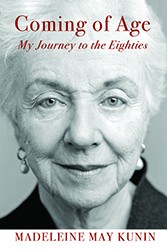We all make mistakes. It’s an obvious statement with not-so-obvious implications. The story of these unexpected consequences is at the heart of best-selling author Michael Lewis’ (Flash Boys, The Big Short, Moneyball, The Blind Side) latest work, The Undoing Project.
The focus of this book is not a person, or even two people, but the relationship between two extraordinary Israeli minds, those of Amos Tversky and Danny Kahneman. Tversky was a brilliant and brash economist with an interest in psychology. He was rude and fascinating, a Holocaust survivor and a decorated Israeli war hero. He was the guy everyone wanted to talk to at a party. Kahneman, who readers may recognize as the best-selling author of Thinking Fast and Slow, was a psychologist. A wellspring of ideas and critical thought, he was also brooding and doubtful. Like Tversky, he was a soldier, but a more intellectual one. As Lewis faithfully points out, any description would fall short of encompassing the complexity of these men. His book is an effort to do them justice.
Lewis describes the early years of the collaboration between Tversky and Khaneman as nothing short of a mind-meld. They completed each other’s ideas; neither knew where their thoughts began or ended. It was a love story of the intellect that changed the way we understand the way our minds work. Tversky and Khaneman proved, through a series of brilliant experiments, that our mind plays tricks on us just like the visual illusions that make us question whether we are looking at a vase or the profile of two faces.
This recognition led to the rise of a whole new field called behavioral economics, which doesn’t see decision making as rational, but rather influenced by the quirks of the mind. It also brought into question the entire notion of expertise, and let to the growth of algorithm-based decision making in medicine and policy. It also resulted, eventually, in a Nobel prize.
Lewis is known for bringing humanity and thrill to technical stories, and he again brings his world-class journalistic powers of research and analysis to the subject of The Undoing Project. He does an exemplary job translating somewhat arcane academic works to easily accessible pop science.
The reader should be aware that this book is not a page-turner. The plot is fairly thin and seems to lose its way in the middle, where a closer adherence to chronology would have helped build a stronger understanding of the pressures acting on Tversky and Khaneman’s relationship. However, The Undoing Project is a slow burn, one that is well worth the read because it becomes hotter and hotter as the story progresses.
Related Reads:





